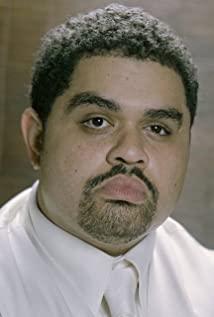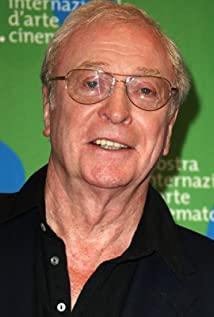1. Recently, when I was very bored, I got a DVD of "Paradise Cinema" and watched it again. This time I looked closely and saw details that I hadn't noticed before. There are some scenes that still move me. For example, on the night of welcoming the New Year, Duoduo didn't wait for Elena, turned around and walked along the street under the dim yellow street lights. Crossing his lonely background, one could see two bunches of fireworks in the night sky. It exploded, and it was as gorgeous as a dream. Moreover, after they separated, Duoduo went out to show an open-air movie. It was raining, the audience scattered, and the square was empty. Duoduo lay on his back in the open space, closed his eyes, and let the raindrops hit him. He suddenly felt someone kissing her, and when he opened his eyes, it was Elena. The two hugged tightly in the rain. At that moment, they should believe that nothing can separate them again. "Paradise Cinema" is a specimen of the collective memory of the small town generation. The small cinema is actually a window of life. Through this window, we have seen babies waiting to be fed, stubborn children, restless adolescents, and middle-aged people who have nothing to do; Through it, we can also see many marks of that era. The wounds brought by the war to the town were almost invisible by the sea breeze. The asceticism was still inviolable under the insistence of the priest, accompanied by the black hand of the story on the screen The party murders are so silent, and of course, there is love that comes from watching and grows up. Cinema Paradiso is a somewhat autobiographical film by Giuseppe Tonadore. Perhaps, from Gisep. Since Tonadore was a child, the movie is a beautiful and sacred thing, as seen in Duo Duo's eyes. Therefore, Tonadore exaggerated the role of the movie in the life of the small town in the "Tian" film. Movies have brought laughter and tears, dreams and hopes to the people of the small town. It provides the humble masses with an opportunity to escape from the world, allowing them to overlook the various states of life from the perspective of scrutinizers and judges. Everyone can see the things that move them in "Paradise Cinema", the story of the princess and the soldier, the love between Duo Duo and Elena, as well as those edited by Alfredo that made Duo Duo cry silently as an adult kissing shot. In my opinion, "Tian" is a film about growing up. Similar to the ship in "The Pianist at Sea" and Dr. Wilbur's orphanage in "The Law of the Cider House", Cinema Paradise is a concept of "maternal body" for Duoduo, and this matrix gives Duoduo the nutrients for growth in childhood. In the cinema, Duoduo watched the stories on the screen, and at the same time saw the human drama of joys and sorrows under the screen; through the film, Duoduo was learning about this society, and he was used to thinking in the way of film, and every time Alfredo said a word , A lot of people will ask, which movie is this line from? When Duoduo grew up, he began to understand the bloody reality by filming the execution of cows; when Duoduo saw his beloved girl, the first thing that came to his mind was to lift the camera and engrave her on the film. The film and his heart are connected together. of. And Alfredo, Duoduo's actual father, is the guardian of the cinema. He actually sees the world through movies. When the old Paradise Cinema was damaged by fire, Alfredo became blind. Just like mothers' increasingly dry breasts, Paradise Cinema and the town are becoming more and more impoverished spiritually, and it can no longer provide nutrients for Duo Duo's growth. At this time, Duo Duo has to leave the cinema and the town and find the wider land beyond the sea. . A lot of them didn't realize it, but Alfredo realized that, he said, movies are just movies, they can never replace life. He said, Duoduo, go away and never come back. Although Paradise Cinema once had such good memories, even though the town left behind a sweet past of himself and his lover, Duoduo had to leave. When you grow up, you have to walk, experience, stay in the movie theater, and you can only see other people's stories forever. 2. "The Law of the Cider House", the only movie I've watched with a smile all the time, it's as quiet and soothing as a poem. It describes Homer's growth as my own growth, it describes the beauty of the world, as I see it, it describes the beauty of the world Some of the evils described are just as bad as I have seen. Homer was an orphan who grew up in Dr. Wilbur's orphanage and learned medicine from the doctor, but Homer has always refused to perform abortions on pregnant women, which he believes is immoral. Dr. Wilbur is getting older, and he wants Homer to take over his care of the orphanage, but Homer keeps refusing. Candy and her boyfriend Wally came to the orphanage to have an abortion, Homer got into their car, and when they left, the autumn leaves on the roadside trees were like summer flowers. It was the first time Homer saw such a long road, the first time he saw the sea, and the first time he fell in love. Homer stayed on as a fruit picker in Wally's apple orchard. There is a piece of paper "The Cider House Rules" in the wooden house in the apple orchard: no smoking in the house, no roofing... Homer ripped it off and threw it in the stove. Wally joined the army, Homer and Candy fished for lobster together, drove a big truck together in the endless apple orchard, and at night, in a wooden house deep in the orchard, they murmured love words after passion. The female worker in the orchard is pregnant, and Homer gives up his principle to give her an abortion after knowing the truth of the incident; Wally is paralyzed in the war, Candy returns to Wally to take care of him, Homer smiles and watches her go away; the old and frail Dr. Wilbur is due to overdose The ether died, Homer went back to the orphanage, and before the children went to bed, he said to them like old Wilbur: Good night you Prince's of Maine, you King's of New England. Homer's journey has constructed his value system, allowing him to return from idealism to realism, from freedom to responsibility. When Homer first saw the dogma in the Apple House, he thought it was absurd and should be burned without hesitation. He has an idealistic morality without realizing that absolute idealism is as thin as the laws of the Apple House. He thinks abortion is immoral, doesn't want to be a doctor, is afraid to do jobs like abortion; he's an orphan and when he grows up, he's afraid to take care of those kids. So, he chose to leave. Homer slowly learned about the world while walking, and formed his own morality. This morality was not written on a note in the apple orchard, nor was he imagined in an orphanage. A black female worker in an apple orchard becomes pregnant with her brother's child, and Homer has to perform surgery on her for an abortion. This is a landmark event, and in him, idealistic morality finally returns to realism, that is, cherishing life and life. Compassion, this kind of compassion allowed him to return to the orphanage and take responsibility. He finally knew that it took more courage to be a compassionate realist than a lofty idealist. 3. We've heard of Never-Never-Land countless times, but we wouldn't know how magical it is if we didn't actually set foot on that land. We read 10,000 novels and a thousand poems about love, but we don't know what color it is unless we fall in love ourselves. But many times, when we stand in front of a forest, we dare not walk into it. We are afraid of being alone, of being disoriented, of being punctured by thorns, of waking up to find ourselves lying on unfamiliar grass. Eight years after the release of Cinema Paradiso, Giuseppe Tornadore made The Pianist at Sea. In 1900, a man who lived on a boat his whole life. He once saw the bustling crowd on the mainland so close, and he once smelled the fragrance of love so close. However, he ended up staying on the boat, living in his own musical world. 1900 can strike 88 keys skillfully, but he doesn't have the courage to step down 88 steps; he can play gorgeous music, but he doesn't dare to say three simple words to the girl he likes. The life of 1900, at its most brilliant, was nothing more than lighting a cigarette with a reddish steel string. Eight years ago, Gisep. Tonadore said to Duoduo through the mouth of Alfredo, you leave, and never come back. This time, he said, 1900, you stay, never go. The greatest charm of life lies in its endless possibilities. The Paradise Cinema and the sea ship limit this possibility; the cider house’s regulations make our judgment standards as rigid as dogma, so we quarrel and curse, not allowing the world to have something different from our imagination, Like the son William in Big Fish doubts everything his father Edward has seen. Why not leave them and, like Homer, form your own values through experience, and why not walk, like Edward Bloom, walking with giants on the road, watching mermaids in the moonlight by the river.
View more about The Cider House Rules reviews











